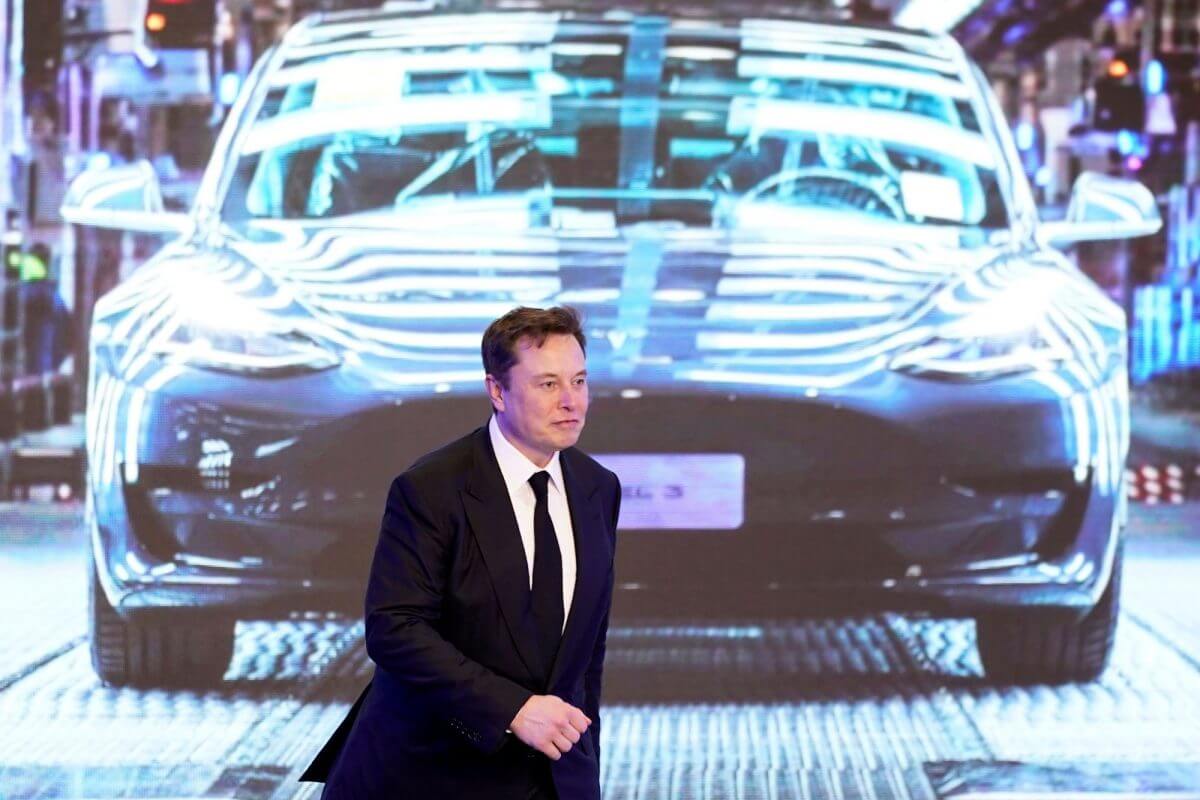
Elon Musk’s biggest competitor is a company that hasn’t even shipped a single car yet. | Image: REUTERS / Aly Song
- Rivian, the company that poses the biggest risk to Tesla in the U.S., hasn’t delivered a single car yet.
- Rivian is six years younger than Tesla but could take a shorter time to reach key delivery milestones.
- The Elon Musk-led firm has a head start but Rivian will be launching cars in an environment when EVs have gained acceptance.
Having recently become the world’s second most valuable carmaker, Tesla (NASDAQ:TSLA) is considered a threat to traditional auto manufacturers. But does the Elon Musk-led company ever consider potential rivals within the EV space? Michigan-based Rivian could give Tesla a run for its money.
Here are five reasons why Musk should be losing sleep over Rivian, the well-funded EV startup.
1. Heavy demand
After being founded in 2009 by CEO Robert Scaringe, Rivian is yet to sell a single vehicle more than a decade later. But with the first orders set to be delivered later this year, Rivian has had the perfect start.
Over the weekend Scaringe disclosed that pre-orders had been overwhelming. He said:
… a lot of pre-order customers aren’t going to get the cars as fast as they like because there’s such a long queue.
Last year, Amazon ordered 100,000 electric delivery vans from Rivian. For comparison’s sake, it took Tesla 13 years before it sold the same number of vehicles.
2. Flush with cash
Tesla’s cash flow problems are well known. As it rolls out new models and expands aggressively in China, additional working capital will be required. In its 2019 third quarter results, Tesla’s operating cash flow recorded double digit declines quarter-on-quarter and year-on-year.
Tesla’s cash flow position fared worse in Q3 2019 relative to the same period a year earlier. | Source: Tesla
Rivian is swimming in cash. In 2019, The company raised $2.85 billion with $1.3 billion having been received in December. Some of its investors include Ford Motor Company (NYSE:F) and Amazon (NASDAQ:AMZN).
3. Rivian’s business model is more diversified than Tesla’s
Besides selling its own branded cars, Rivian will also supply a skateboard platform (motor, battery pack, computer systems and wheels) to Ford and possibly other manufacturers in the future. This diversified business model (combining business-to-consumer with business-to-business) allows Rivian to grow volumes and revenues.
The same cannot be said of Tesla, which overwhelmingly relies on a direct-to-consumer model.
4. With federal tax incentives gone, Tesla now less competitive
Rivian’s products are now more affordable and in a better position to compete with Tesla than they would have been months ago. For instance, when Rivian first announced the R1T truck two years ago, the starting price was $69,000 before any incentives.
Source: Twitter
Following the unveiling of the Cybertruck, Rivian has reduced the prices. Over the weekend Rivian revealed that the $69,000 pre-incentives price was for a mid-range truck. A truck with the basic features will consequently sell for less and be about what the Cybertruck costs.
Additionally, Rivian will be eligible for federal tax credits that Tesla no longer has access to based on new Congress rules. The rules limit the incentives to EV manufacturers with sales below 200,000 units.
5. No “public company burden”
As a private company, Rivian is free of the pressure and scrutiny that listed companies come under. Elon Musk knows all too well what this means. Overwhelmed by this, Musk at one time threatened to take Tesla private. He didn’t carry out his threat though.
Source: Twitter
For all the good things going for Rivian, the ride will not be flawlessly smooth. For one, Tesla has a head start and established infrastructure to support its customer base. This includes the Tesla Supercharger network.
While Rivian has stated that ordinary charging infrastructure will work, a fast-charging network like Tesla’s is needed to compel buyers to enter its showrooms.
Disclaimer: The above should not be considered trading advice from CCN.com. The opinions expressed in this article do not necessarily reflect the views of CCN.com.
This article was edited by Sam Bourgi.






